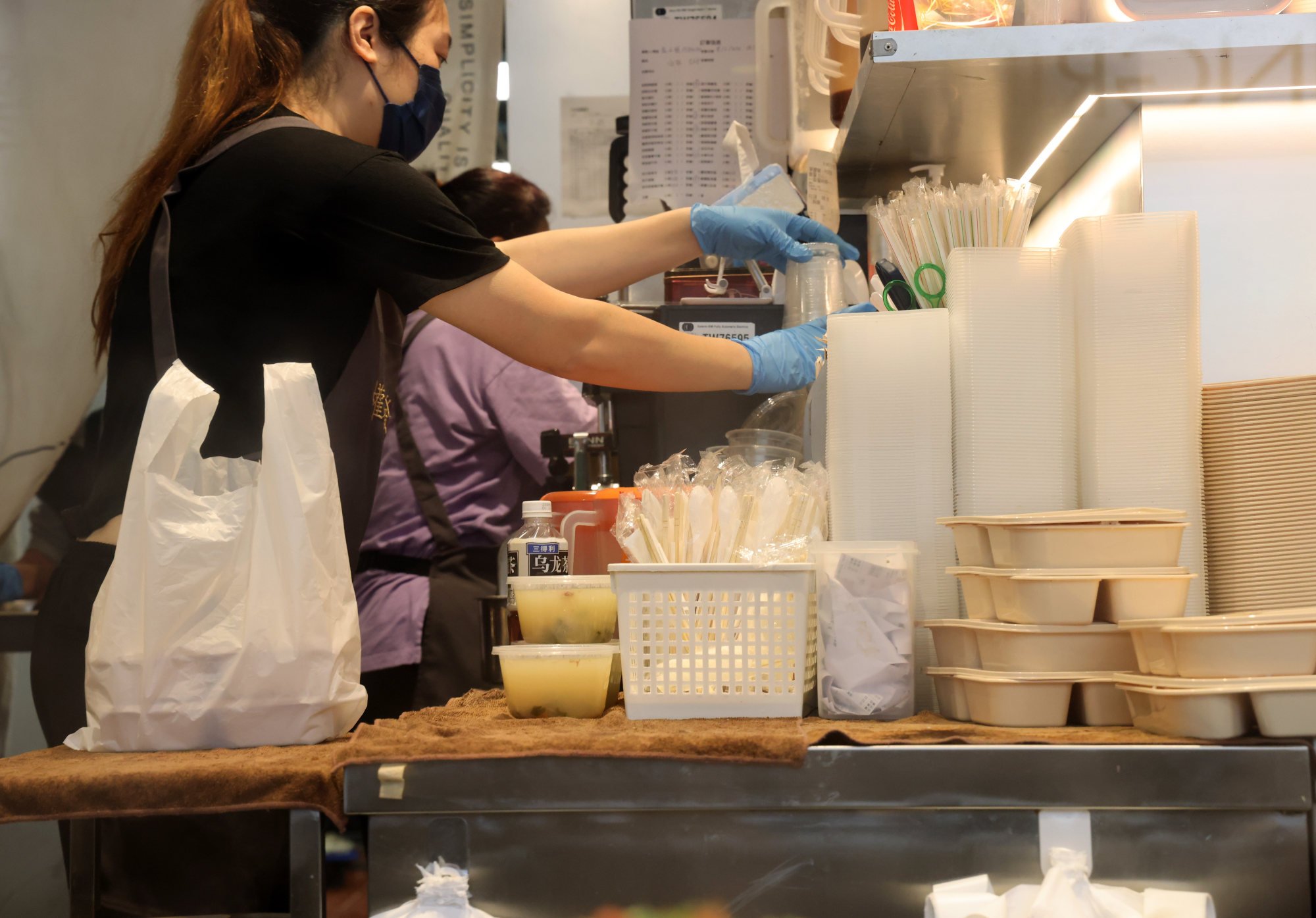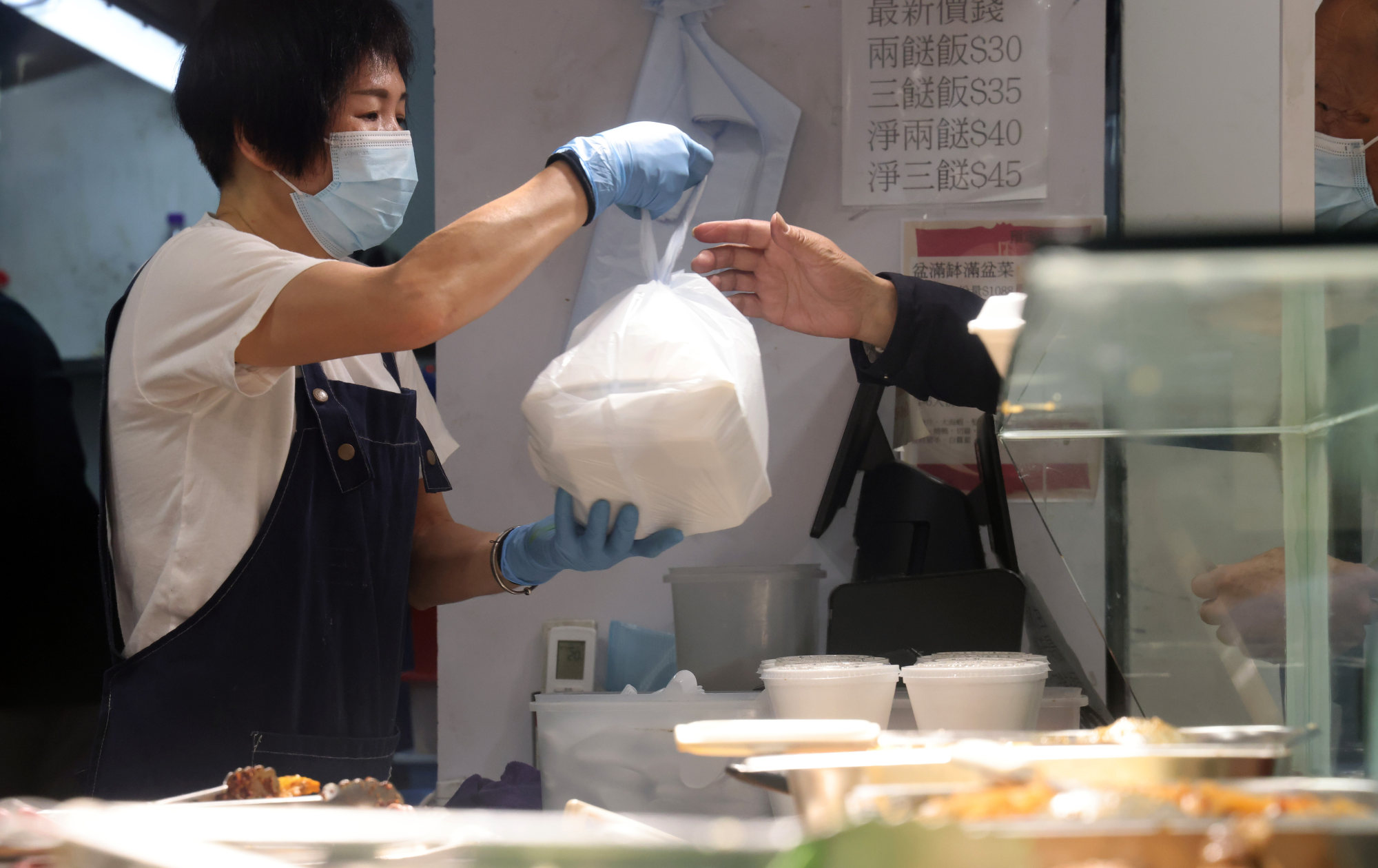What you need to know about Hong Kong’s coming ban on single-use plastics
Starting on April 22, restaurants cannot offer customers any polystyrene products, disposable plastic straws, stirrers, cutlery or plates for dine-in and takeaway services. They are not allowed either to provide single-use cups, cup lids or food containers to dine-in customers.
The first phase also covers products with non-plastic alternatives, such as cotton buds, umbrella covers and glow sticks.
Meanwhile, hotels and guest houses will be barred from supplying free toiletries in synthetic disposable containers and free in-room water in plastic bottles.

2. What items will get exempted after April 22, and why?
Pre-packed food that has utensils attached to it, such as instant noodles and ice cream, and packaged beverages with plastic straws will be exempted.
Authorities said an exemption would only apply if tableware was part of the commodity or added during the manufacturing process.
Restaurants and retailers can give disposable plastic straws to customers with special medical needs, the government said, without providing examples.
Places, such as hospital wards and correctional facilities, can also offer disposable plastic tableware due to medical or security needs.
The government will also exempt the sale and free distribution of single-use plastic products under “specific circumstances”, including medical or public health needs, scientific, forensic or study purposes, security and public security reasons, and other emergencies.
Hong Kong to delay first phase of ban on plastic tableware at restaurants
3. Who will be liable to penalties and who will not?
The law does not regulate the public.
According to the Product Eco-responsibility Ordinance, those who breach the ban are subject to a maximum fine of HK$100,000 (US$12,800).
A fixed penalty system will be introduced, where law enforcement officers are entitled to issue HK$2,000 tickets to those retailers or people in charge of such catering premises.
The government called on the catering industry to adopt eco-friendly alternatives, such as paper or plant fibre, as soon as possible. The Environment and Ecology Bureau has built an online platform for the food and beverage sector, tableware suppliers and the public to refer to.
Hong Kong ban on single-use plastic tableware to start on April 22 next year
4. What are the reasons behind the ban?
Government statistics showed that out of the 10,809 tonnes of municipal solid waste discarded each day in the city’s landfills in 2020, 21 per cent were plastics. It turned authorities’ policymaking direction towards reducing plastic use “at source”.
“Plastics can stay in the environment for a very long period, causing far-reaching threats to the environment and ecology,” environment authorities said in a paper submitted to the Legislative Council last year.
In a two-month public consultation conducted by the Environmental Protection Department in 2021, more than 90 per cent of the 8,552 respondents supported progressively regulating disposable plastic tableware by legislation.
Last March, representatives from 175 countries passed a resolution at the UN Environment Assembly to draft an international treaty aiming to alleviate plastic pollution.
The resolution stipulated that all the 175 member states had to develop a legally binding agreement on plastic pollution before the end of this year – it has been considered a “major step” towards reducing greenhouse gas emissions from the production, use and disposal of plastics.

5. What are mainland China and others doing to cut plastics?
Mainland Chinese authorities recently phased out disposable plastic products across the country, including non-biodegradable throwaway plastic tableware, the manufacturing and selling of expanded polystyrene products and plastic cotton buds.
Neighbouring Macau, the casino city, has banned the import of polystyrene products since 2021, as well as throwaway utensils, such as straws, knives, forks and spoons.
Taiwan in 2002 outlawed the use of disposable plastic straws and tableware for government departments, retail stores, the catering sector and schools, and is currently eyeing a comprehensive ban by 2030.
‘Hong Kong pharmacies lack education over ban on plastic toothpicks, cotton buds’
6. When will Hong Kong launch the second phase?
Phase two, which could start as early as 2025, will ban all use of throwaway plastics in restaurants, plastic food containers, six-pack yokes for canned drinks, tablecloths, disposable gloves and plastic-stemmed dental floss.
Free distribution of earplugs will also be prohibited.
However, authorities said the introduction of phase two would depend on the availability and affordability of the non-plastic or reusable alternatives.
They added they would also review the implementation of the first phase before deciding on the next step.